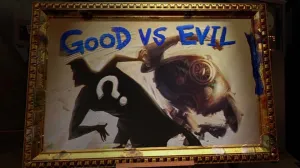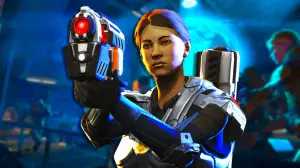Science fiction has been an important part of American culture since the late 1950s, although not all popular shows are made in this country. As Rod Serling discovered, this type of storytelling is the easiest way to hold a mirror up to American society without running afoul of censors. Every generation has had at least one sci-fi show that reflected life at that moment in time, no matter how futuristic the show was. These shows are popular because they give voice to the experiences of an entire generation.
Videos by ComicBook.com
7) Early 1960s: The Twilight Zone
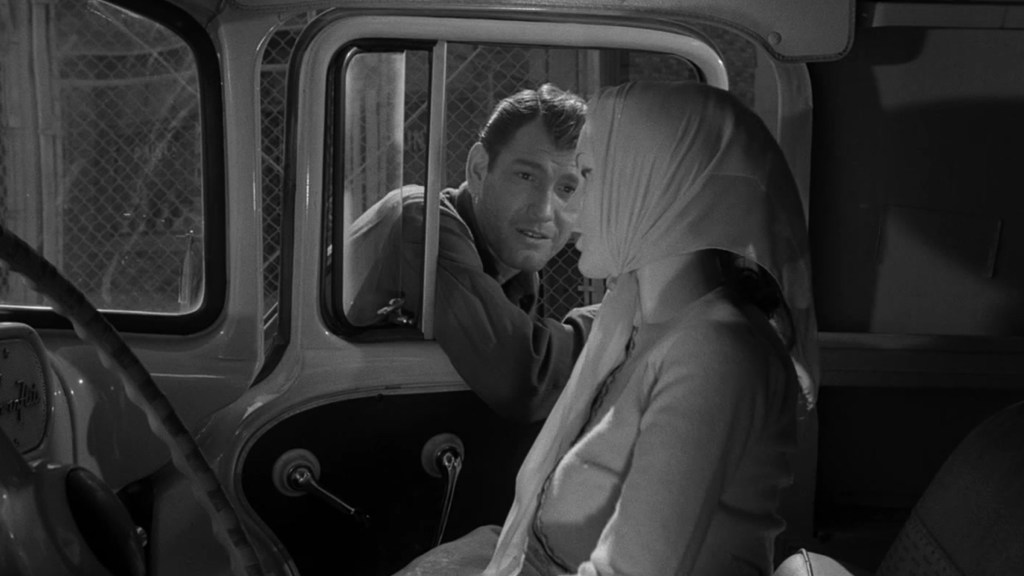
The Twilight Zone was one of the earliest science fiction shows, and the first to give voice to the tensions that were just under the surface of the allegedly happy and prosperous American society in the pre-Kennedy assassination years.
From 1959 to 1963, Serling’s sci-fi and horror anthology series addressed racism, scapegoating, and inequality through stories involving aliens and unexplained phenomena. The series also addressed situations that were familiar to the average American family, such as the death of a beloved grandparent, making its deeper messages more palatable. Many people tuned in for the Twilight Zone‘s surprise twist endings, while others enjoyed watching well-known guest stars take unusual roles.
6) Late 1960s: Star Trek
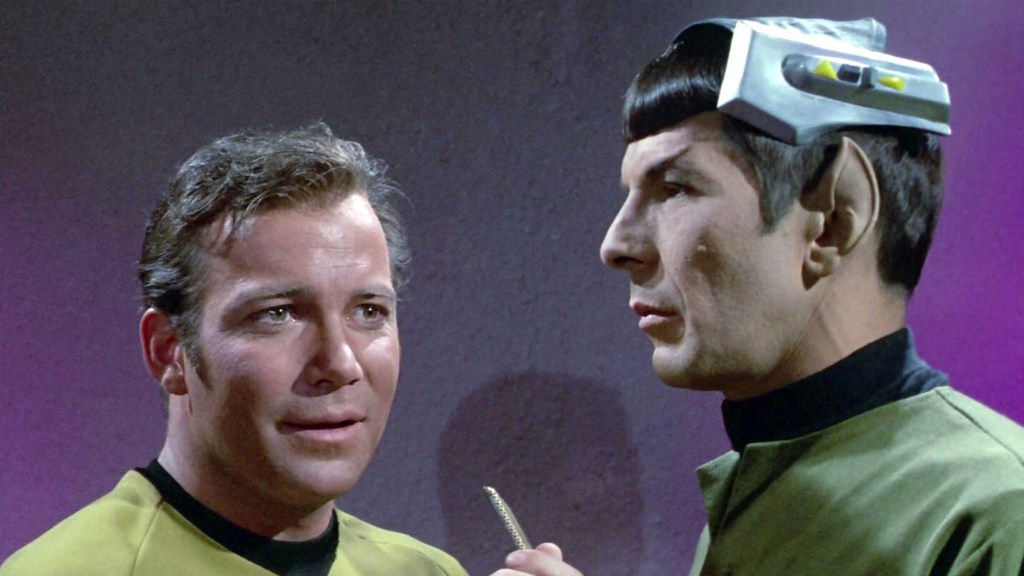
Star Trek is inarguably one of the most influential science fiction series of all time. It debuted during a time of great societal upheaval and didn’t shy away from social issues that were dividing the United States. It was one of the first shows to have a diverse cast and was constantly pushing the envelope on what was acceptable to broadcast in order to improve inclusivity.
These themes, along with the idea of space exploration, reflected the turbulent late 1960s. The Civil Rights Movement was in full swing, the Vietnam War was ongoing, and Americans were divided about everything that was happening. Many people turned to Star Trek for reassurance that a future was someday coming where people lived in peace, respected differences, and sought to make the entire universe a better place.
5) Early 1980s: V

Although there was an explosion of science fiction shows in the 1970s, no one show really defined that generation. However, the early 1980s were a different story. The science fiction miniseries V captivated audiences who were fearful that the Cold War with Russia would turn hot, especially since the US and Russia were both interested in outer space.
V reflected these fears via a story about aliens who invaded and disguised themselves as benevolent humans while secretly planning to kill humans for food and steal all the available water. This plot also reflected the growing fear that natural resources were becoming depleted, which began to become prevalent during this era.
4) Late 1980s/Early 1990s: Star Trek: The Next Generation

Star Trek: The Next Generation was as influential as the original Star Trek. It introduced American audiences to the legendary Patrick Stewart as Captain Picard, and many viewers who knew Levar Burton as the host of Reading Rainbow were delighted with his performance as Geordi La Forge. Phrases such as Picard’s “Make it so” entered the pop culture lexicon, and the new series helped kick off the franchise, leading to other spinoffs such as Deep Space 9.
Just as importantly, The Next Generation continued Star Trek’s commitment to values such as inclusivity, peace, and harmony while offering updated technology to complement its stories. Touchscreens, the use of the holodeck, and other technological advancements helped modernize the series while the basic themes remained the same during the best episodes of Star Trek: The Next Generation, giving a new generation of fans hope for a future where humanity had resolved many of its problems.
3) Late 1990s: The X-Files
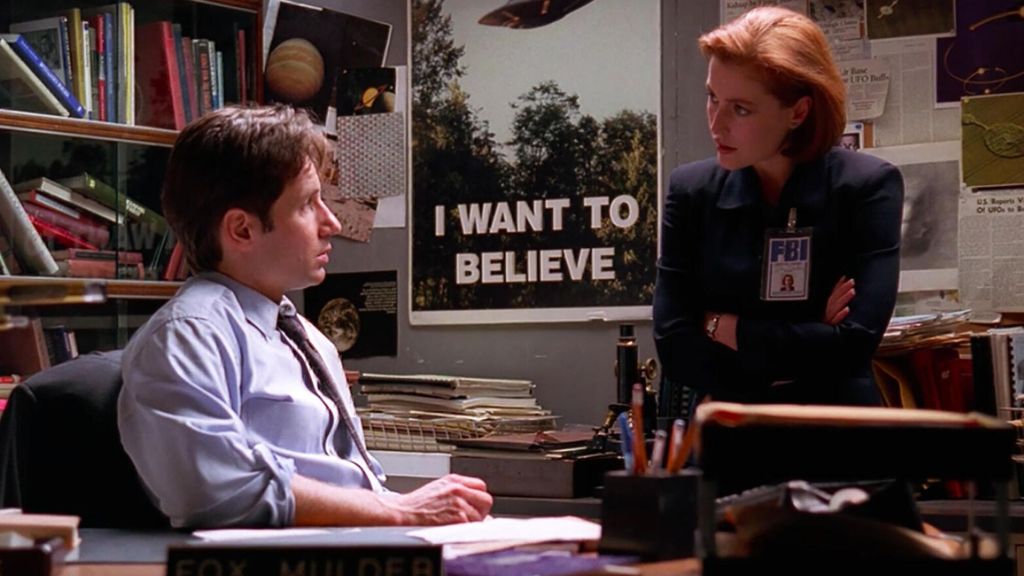
The X-Files reflected the late 1990s perfectly. The fall of the Berlin Wall and the Soviet Union contributed to people’s fears of government conspiracies, and many people believed that aliens walked among us, but their visits had been covered up by the US government.
The X-Files addressed these fears by focusing on two government agents who investigated paranormal activity without believing equally in aliens or supernatural creatures. Scully and Mulder’s adventures closely resembled standard police procedurals, but they searched for the monster of the week instead of human suspects. Some episodes of The X-Files were controversial because of their grotesque depictions of what the monsters did to people or the themes they addressed, but that didn’t stop an entire generation from falling in love with the show.
2) Early 2000s: The Revival of Doctor Who
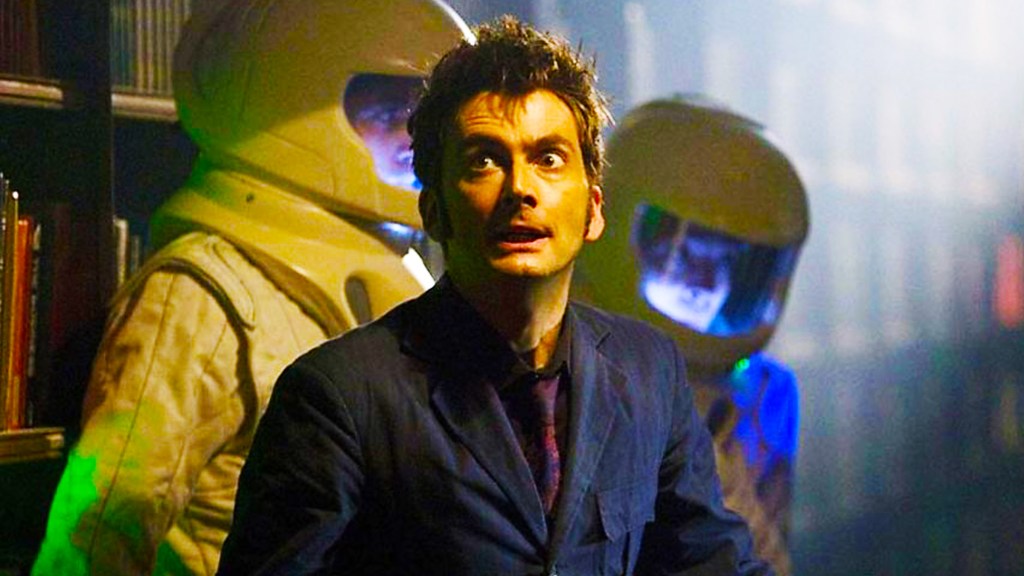
The original Doctor Who was a British institution, but it didn’t take off in the United States, where only a few people watched it on PBS. However, the revival of the series was much darker and more adult-oriented, which explains its popularity with the newest generations.
The Doctor Who revival premiered only a few years after the 9/11 terrorist attacks. The world had become a scary place, especially for Americans, and there were endless debates about where the line was between protecting America from terrorism and trampling on people’s Constitutional rights.
For these reasons, a series about the only survivor of the Time War traveling the universe and trying to right wrongs was extremely appealing. Doctor Who not only became popular but also spawned several spinoffs while promoting inclusivity and peace, while also exploring moral conundrums.
1) Late 2010s to 2025: Stranger Things

Ironically, the science fiction show that most defines the current generation is set 40 years earlier, in the 1980s. This setting reflects a certain nostalgia for the pre-digital age, when life was allegedly simpler, although the premise of Stranger Things demonstrates that this is not the case at all.
Stranger Things leans into the stranger danger fears of the 1980s by having aliens kidnap human children. The science fiction elements of the show help demonstrate that the past was never as safe as we remember it to be, which is a message that is resonating with people who are fed up with the political divides and attacks upon people who are different in 2025, especially since those situations are borne out of a desire to go back to earlier times in American history.
What science fiction show do you think most defines your generation? Leave a comment and join the conversation at the Comic Book Forum.







